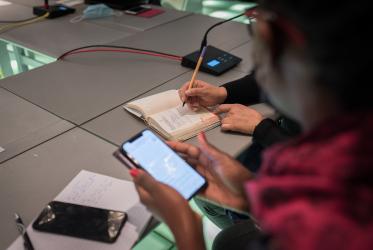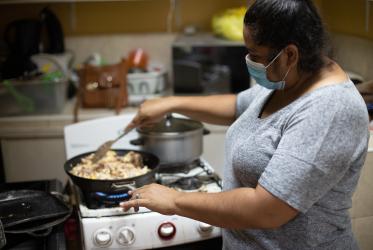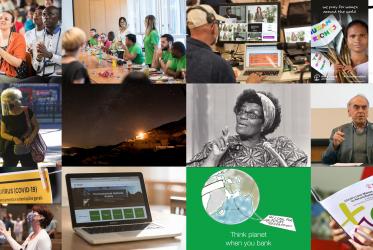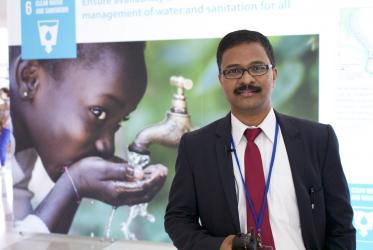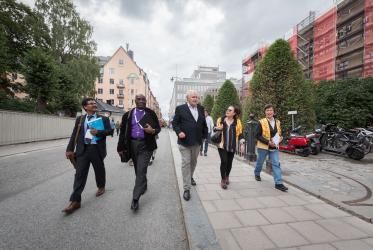Displaying 1 - 20 of 44
WCC President Wejryd: ‘Water, in many ways, represents God’
27 September 2019
Doing his best without being the best
07 September 2018
Faith and Water: Translating words into action
30 August 2018
